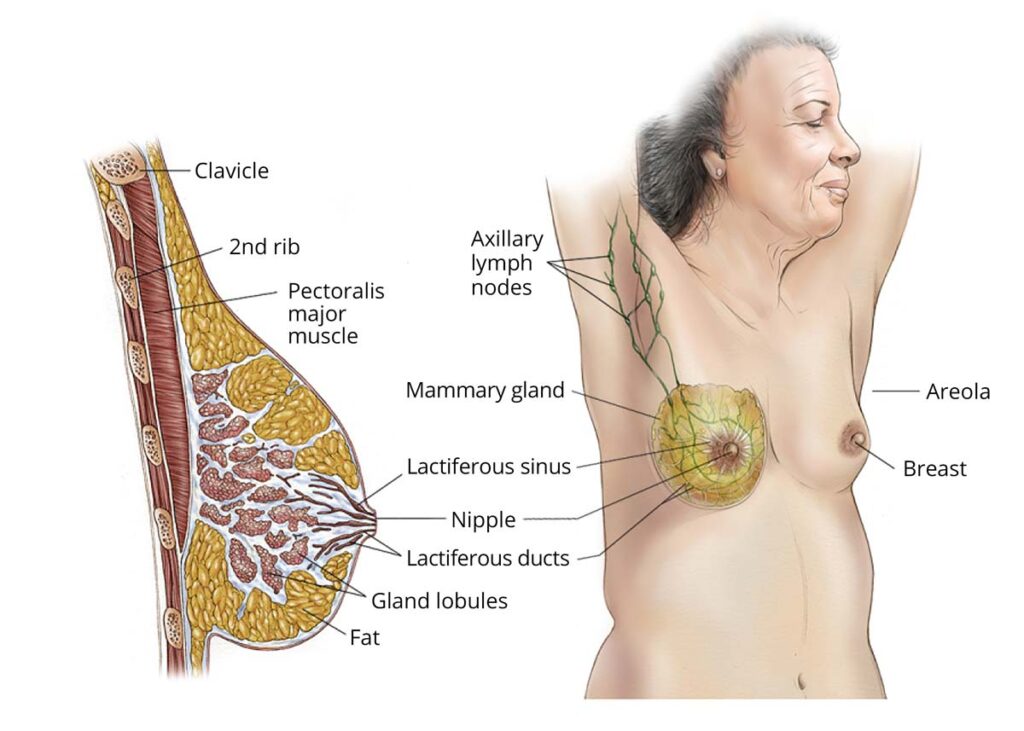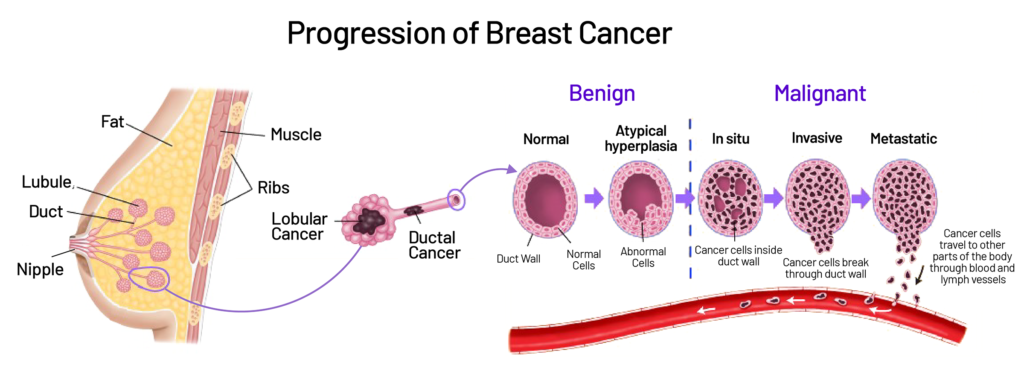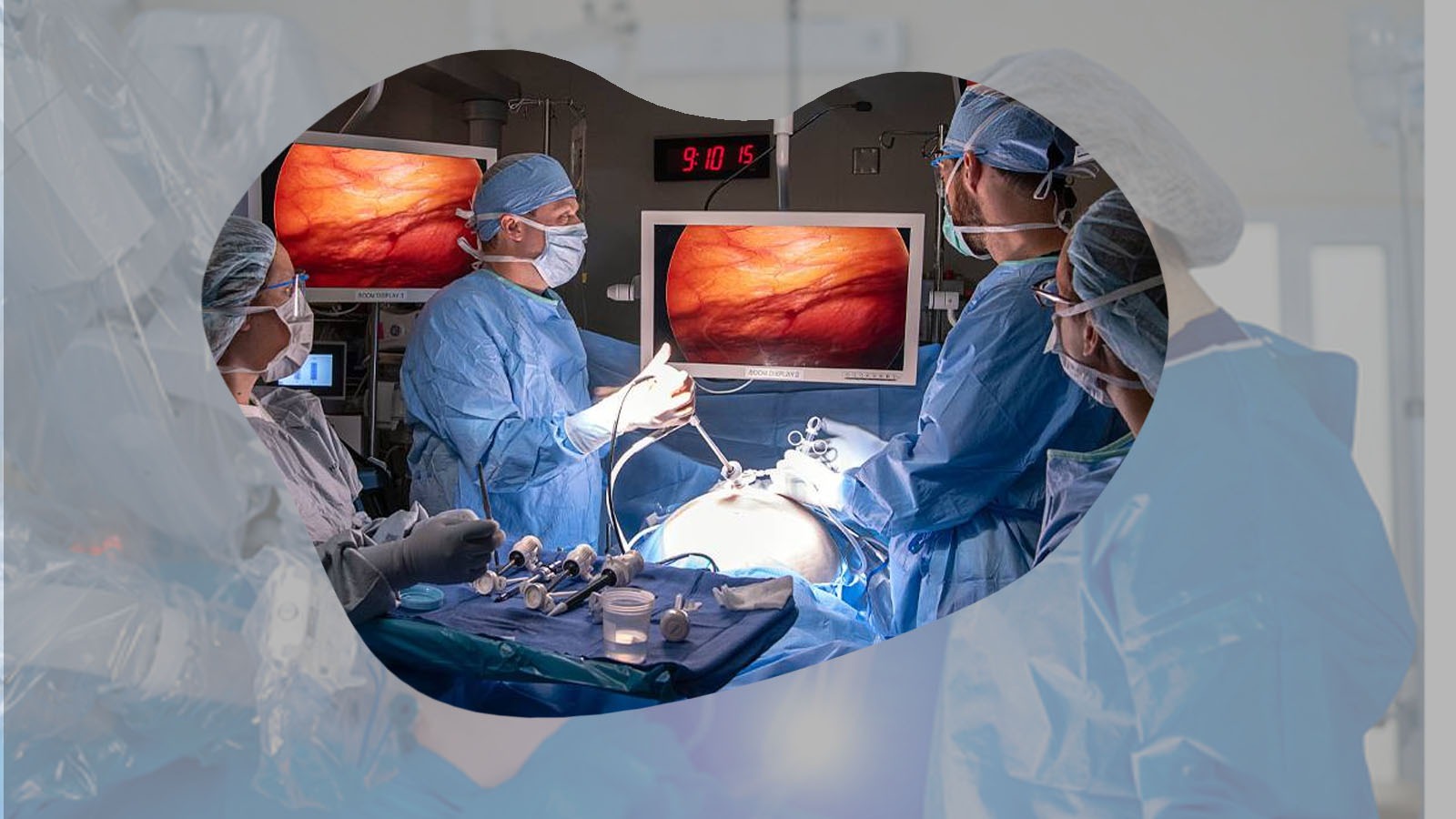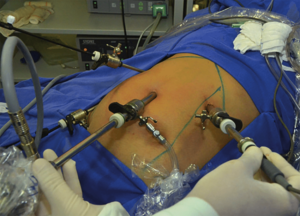Breast cancer is among the most common cancers affecting women worldwide. Carcinoma breast cancer, in particular, is a term used to describe malignant tumors that develop in the epithelial cells of the breast tissue. For individuals and families grappling with this diagnosis, understanding the disease is crucial for making informed decisions about treatment and care.
Dr. Pallab Saha, a leading minimally invasive surgeon in Kolkata with extensive expertise in breast cancer and soft tissue cancer surgery, provides insights into carcinoma breast cancer, its symptoms, risk factors, and the treatment options available.

What is Carcinoma Breast Cancer?
Carcinoma refers to cancers that begin in the epithelial cells lining organs and tissues. In the context of breast cancer, these are typically:
- Ductal Carcinoma: Originates in the milk ducts, the most common type of breast cancer.
- Lobular Carcinoma: Begins in the milk-producing lobules of the breast.
Both types can be invasive, meaning they spread beyond the original tissue, or non-invasive, also known as in situ, where they remain localized.
Recognizing Symptoms
Early detection is critical in managing breast cancer effectively. Common symptoms include:
- A new lump or mass in the breast or underarm.
- Changes in breast size or shape.
- Skin irritation or dimpling.
- Nipple retraction or discharge, especially if bloody.
- Redness or scaling of the nipple or breast skin.
Regular self-examinations and mammograms are essential for early detection.

Risk Factors
Understanding risk factors helps in assessing the likelihood of developing carcinoma breast cancer. These include:
- Age: Risk increases with age, particularly after 50.
- Family History: A history of breast or ovarian cancer in close relatives.
- Genetic Mutations: Mutations in BRCA1 or BRCA2 genes.
- Hormonal Factors: Long-term hormone replacement therapy or early menstruation.
- Lifestyle Choices: Sedentary lifestyle, obesity, alcohol consumption, and smoking.
Diagnosis
Diagnosis involves a combination of clinical evaluation, imaging studies, and biopsy. Key methods include:
- Mammography: X-ray imaging to detect abnormalities.
- Ultrasound and MRI: Used to assess specific findings.
- Biopsy: Tissue sampling to confirm malignancy and determine the cancer type.
Dr. Saha emphasizes the importance of a multidisciplinary approach in evaluating the extent and type of carcinoma.

Treatment Options
Treatment for carcinoma breast cancer depends on the stage, type, and individual health. Common approaches include:
- Surgery:
- Lumpectomy: Breast treasuring surgery with lumpectomy and axillary clearance
- Radical Mastectimy: Complete removal of the breast.
- Radiation Therapy: Targets cancer cells left after surgery.
- Chemotherapy: Systemic treatment to target cancer cells throughout the body.
- Hormone Therapy: For hormone receptor-positive cancers, using drugs to block hormone production.
- Targeted Therapy: Focuses on specific molecules involved in cancer growth, such as HER2-positive cancers.
Advances in Breast Cancer Treatment
Modern advancements have transformed breast cancer management. Techniques like oncoplastic surgery combine tumor removal with cosmetic preservation. Additionally, minimally invasive laparoscopic procedures and personalized medicine are redefining treatment protocols.
Dr. Pallab Saha ensures patients receive cutting-edge treatment tailored to their specific needs, focusing on recovery and quality of life.

Prevention and Awareness
Preventive measures include lifestyle modifications like regular exercise, maintaining a healthy weight, limiting alcohol, and avoiding tobacco. Regular screening and genetic testing for high-risk individuals are critical.
Dr. Saha advocates for raising awareness and promoting early detection as key to improving survival rates. He is a minimally invasive surgeon , who expertise in breast cancer and soft tissue cancer surgery.
Conclusion
Carcinoma breast cancer is a formidable challenge, but with timely intervention and expert care, it is manageable. Dr. Pallab Saha’s dedication to offering compassionate, high-quality care ensures that patients are supported at every step of their journey.
If you or a loved one need guidance or treatment for carcinoma breast cancer, don’t hesitate to reach out to Dr. Pallab Saha who is a minimally invasive surgeon , who expertise in breast cancer and soft tissue cancer surgery at R G Stone Urology and Laparoscopy Hospital, Kolkata.
Contact us today to learn more about breast cancer care and support.
For more information, visit our clinic or schedule an appointment.






